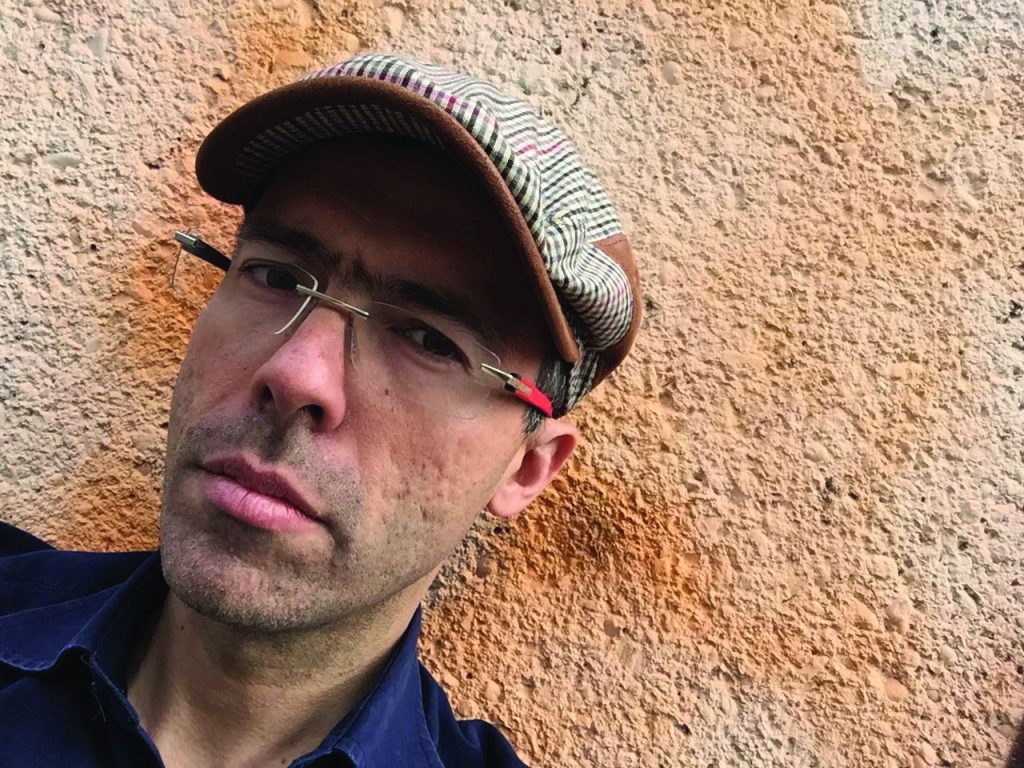São Paulo – Hagar is a daughter to Algerian immigrants who lived in the outskirts of Marseille, France and made her way into the best universities in the country. Her career led her to Syria, where she found work with a multinational corporation and found herself in a war, in 2011. This is the plotline for “O caminho de Abraão,” which sees Brazilian journalist Jamil Chade tackle the situation of Muslims and the identity crisis in Europe.
Hagar’s work is to coordinate multimillion investments in a Syrian manufacturing plant, but the war drives her to take criminal instructions from the company’s board, and she eventually has to flee to keep herself alive. Her flight retraces the path that Abraham, the patriarch to three monotheist religions, mythically took thousands of years ago.
“I chose to write about the situation of Muslims in the outskirts of European cities – not only Algerians, but Muslims in general – as a result of a very serious ongoing crisis: xenophobia and racism,” Chade told ANBA.
Chade defines his book as a denunciation of how some of Europe’s society behaves. This behavior, he argues, is associated with the economic crisis in Europe and the Arab Spring, war in Syria and the arrival of immigrants in the continent.
Europe is amidst an identity crisis, at a crossroads scenario, according to the author. “There’s the perception, at least from the outside, that people’s rights are safely secured in Europe, and that’s not exactly the case,” Chade says.
The Lebanese-descendant writer took a year to write and edit the book, which is based on ten years’ worth of stories, eyewitness accounts and situations from his work as a journalist – ever since the 2008 economic crisis broke out in Europe.
Chade is currently an international correspondent for newspaper O Estado de S. Paulo in Geneva, Switzerland – where the United Nations (UN) headquarters is – covering international conflicts and issues like the ones involving Arab countries and refugees.
The world and Arab culture are also part of his daily routine because of his Arab roots. His parental grandparents came from Lebanon to São Paulo, Brazil seeking a better life.

His first name – Jamil – harks back to his family roots, as do his culinary habits and his involvement with the Arab community in São Paulo. “I spent some of my childhood at Clube Monte Líbano, surrounded by the Lebanese and Syrian Arab community,” he says.
Jamil Chade earned a degree in International Relations from the Pontifical Catholic University (PUC) in São Paulo and a master’s degree from the Graduate Institute in Geneva. Since the year 2000 he has lived in Switzerland and worked as a correspondent for Estado de São Paulo.
He has travelled to the Middle East or covered the region several times, including visits of Brazilian presidents and foreign minister to the region, the Summit of South American-Arab Countries (ASPA), the Syrian war, the ousting of Egypt’s dictator Hosni Mubarak, aspects of the Palestinian issue, refugee camps and developments across the Gulf.
“The Middle East is part of my agenda,” he says. Jamil Chade has been to Syria, where some of his book is set, both before and during the war. He has also covered stories in Algeria, from where the main character’s family is.
The book is out from publisher Editora Planeta. Its launch was due on May 9 at Livraria Cultura bookstore’s Conjunto Nacional unit, including a chat with the author and journalist Patricia Campos Mello, and a signing session.
The work is only available in Portuguese, but the author likes the idea of an Arabic translation. “It would be very useful in enabling dialogue between this West which is permanently questioning itself and the Arab countries and culture. It could add a bit to the understanding of what’s going on with Europe’s identity crisis,” Chade ponders.
Fact sheet:
Book: O caminho de Abraão – Fé, amor e guerras em travessias separadas pelo tempo (The path of Abraham – Faith, love and wars in journeys separated by time)
Author: Jamil Chade
Pages: 304
Price: BRL 45.90
Translated by Gabriel Pomerancblum




